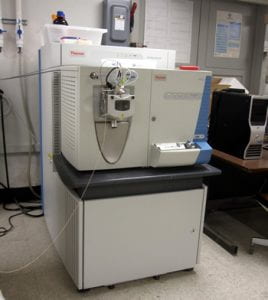After her PhD in Plant Biochemistry & Biophysics on light stress-induced degradation of chloroplast thylakoid proteins, Giulia developed a strong interest and expertise in proteomics and mass spectrometry, and its application in studying chloroplast biology and protein homeostasis. Following training at the Biochemistry Department of Imperial college, London (UK) and the Mass Spectrometry facility with Prof. Alma Burlingame at UCSF, she moved to Sweden and employed her newly learned mass spectrometry skills at the Karolinska Institute and subsequently at the pharmaceutical company Astra-Zeneca in Stockholm. Over the last 19 years at Cornell University, she has made many proteome/mass spectrometry-based contributions to studies involving plastids and chloroplasts, including plastid proteolysis, cell-type specific chloroplast differentiation, chloroplast RNA editing complexes, and more. Giulia has trained and supervised multiple graduate students and postdocs in proteomics and mass spectrometry, and collaborated with many labs across the world to provide proteomics and mass spectrometry expertise, as well as biochemical analysis of plastid proteostasis.
Giulia’s current professional objective is to excel in mass spectrometry and the bioinformatics pipeline of data analyses applied to plant biology and in supervising, advising and training of others in the academic environment. She aims to work as close to the cutting edge of mass spectrometry, biochemistry, and bioinformatics and to follow and implement new developments and tools in plant biology. In that context she aims to be productive and contribute to efforts in obtaining federal funding. You can find my scientific profile, skills and list of publications in peer-reviewed journals on Research Gate or LinkedIn.
Most of our research is currently supported by the National Science Foundation (NSF).




